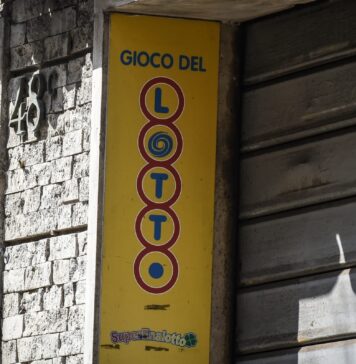(Jamma) The Council of State, with a sentence filed on November 27th, excludes the possibility that a foreign operator acts in Italy through a mediator. “The concessionary-authorisation system in force in our legal system, – affirms the Board – whose legitimacy has also been confirmed by the European Courts, concerns only economic operators who intend to 'organize and manage' in the territory the part of the national betting market abandoned by public structures, and leaves no room for organizational formulas, which, by separating the phases of the negotiation, do not allow the identification of the effective legal roots of the real manager in the national betting market.
The Council of State in the jurisdictional seat (Third Section) accepted the appeal brought by the Ministry of the Interior for the reform of a sentence of the Puglia Tar, Lecce section, concerning the refusal to authorize intermediation activities in the betting sector.
The facts date back to 2011 when the owner of the company, which operates as a data transmission center (CTD) relating to bets on sporting events in favor of a foreign company, holder of a concession in a legal system other than the Italian one, requested authorization from the competent authority for the purpose of issuing the authorization for the activity of offering electronic communications networks and services to the public, pursuant to article 88 of the Consolidated law on public safety laws. However, the competent public safety authority rejected the application on the grounds that the authorization could not be issued, as the applicant was not the holder of the concession to carry out the activity for the organization and management of betting .
The owner of the data transmission center has revolted against the negative provision, essentially deducing that the activity in Italy of the foreign group is protected by the Community legislation concerning the establishment of companies in a Member State other than that of origin, with specific regard to provisions of the Treaty of the European Union concerning the freedom of establishment (art. 42) and the free movement of services (art. 49). The territorial judge upheld the appeal, canceling the refusal provision, on the basis of the reasoning that the Italian licensing and authorization regime is in contrast with the indicated Community rules. However, the sentence was appealed by the Ministry of the Interior, deducing, in essence, that the provisions of the European Treaty, as interpreted by numerous sentences of the Community judge, make the national system fully compatible in the matter of the organization and management of betting .
The case, like others having the same object, was decided at the hearing on November 14, 2013.
"Preliminarily - says the panel - the substantive and procedural legal situation of the Data Transmission Center must be examined, as identified in the heading, in order to assess the existence of the concurrent conditions of the originally proposed action, i.e. the legitimacy of the appeal and the interest in taking action, given that the residual condition of the legal possibility of the requested judicial measure fully exists, since the judge can both cancel the originally challenged measure and disapply the rule in conflict with Community law.
It is common ground between the parties, and it is confirmed by the documents in the case, that the request for police authorization pursuant to article 88 of the TULPS was made solely in favor of the Data Transmission Centre, which was then the only subject to propose the original appeal and also the sole counterparty of the administration in the entire proceedings. However, the request was also signed by the representative of the foreign company; this circumstance which, precisely because the latter did not request the authorization itself, leads the panel to believe that this was done solely to certify the existence of a de facto and legal relationship between the applicant and the foreign organisation.
The legal relationship between the two subjects is regulated by a service contract from the content of which it is easily deduced that - in perfect line with the content of the request for police authorization, where it is requested only for the carrying out of the intermediation activity, without of autonomy and economic risk - the performance of the CTD consists in transmitting via the internet, in real time, to the foreign company the offers for sports bets on fixed odds events received from customers and whether or not the latter accepts the offer, transmitting, again electronically, the relative outcome to the data centre. In the same contract it is established that the relationship is established between two autonomous and independent parties; it is exclusively commercial in nature and does not constitute an employment relationship, an agency contract, a mandate contract, a partnership, joint-venture, company or other contract. It is also established that the center cannot influence the organization of bet management, acceptance and game methods; which does not have the possibility to modify the data, since these are the sole responsibility of the foreign company.
It should also be noted that the entire defensive approach of the private party tends to emphasize the total autonomy and absolute extraneousness of the CTD to the organization and management of bets.
In the light of what emerges from the content of the respective services, and beyond the existence or otherwise of the contractual clause where the parties expressly exclude contracts that imply a closer juridical relationship, the relationship, the qualification of which is reserved to the judge to be objective bases, can only be traced back to that of mediation, governed by Article 1754 of the Civil Code.
The provision of the civil code, where it only provides the notion of 'mediator' and not of 'mediation contract', also allows for forms of mediation to be attracted into its orbit, exclusively systematic and freely organized (in the form of an individual or collective enterprise), in favor of a single subject.
However, even if one wishes to set up a contract due to a mixed cause, the mediation contract remains predominant, consisting of "putting two or more parties into a relationship for the conclusion of a deal, without being bound to any of them by relations of collaboration, dependency or representation".
What matters is that the bet contract is concluded directly, according to the well-known rules of the place where the offeror knows of the acceptance of the other party, between the bettor and the foreign company.
This makes it possible to believe that, in terms of legitimation and existence of the interest in taking action, the data transmission centre, although being able to formally propose the appeal on the basis of the simple fact of having opened the authorization procedure, has no substantial entitlement to request the authorization, ends up not even having the substantial procedural legitimacy; and, in any case, it is sufficient to exclude the actuality of the interest in appealing. In fact, there could be no advantage from the annulment of the originally contested act, given that it presupposes the legal power, which is lacking in the present case, to organize and manage the betting market.
In clearer terms, the CTD could not in any case carry out the activity for which authorization was requested, without the qualified presence in our system of the subject in whose interest it acts.
In fact, the concession-authorization system in force in our legal system, the legitimacy of which has also been confirmed by the European Courts, concerns only economic operators who intend to 'organize and manage' in the territory the part of the national betting market abandoned by public structures, and it leaves no room for organizational formulas which, by separating the negotiation phases, do not allow for the identification of the effective legal rooting of the real manager in the national betting market.
On the other hand, with the mechanism set up, where the Italian State permits it, the actual market manager could carry out his activity abroad without undergoing controls and checks, acting through the intermediary, with respect to whom no responsibility could be conceivable, generating uncertainties among the bettors themselves.










